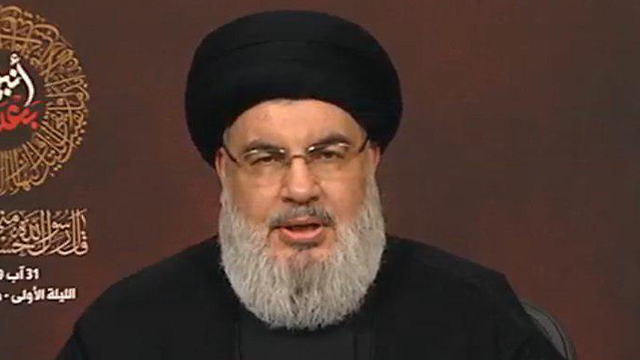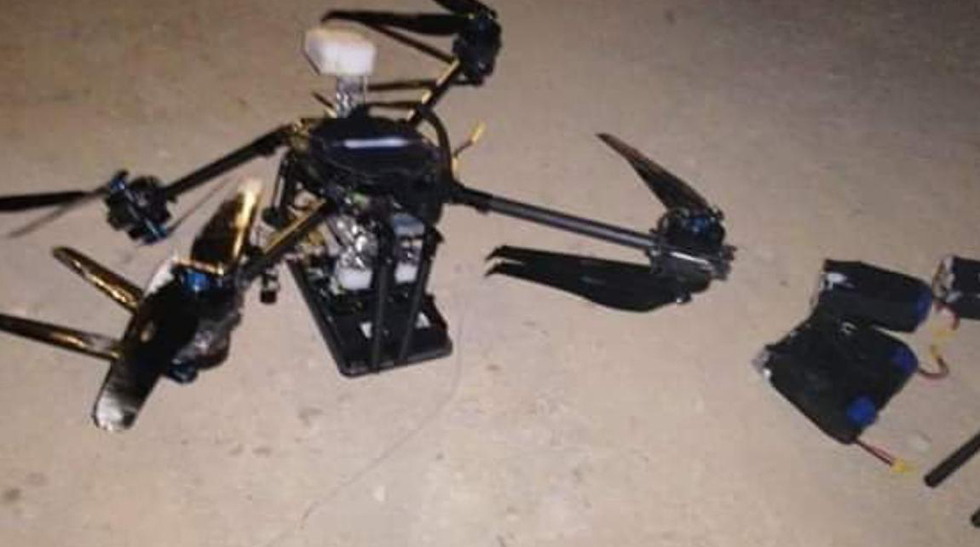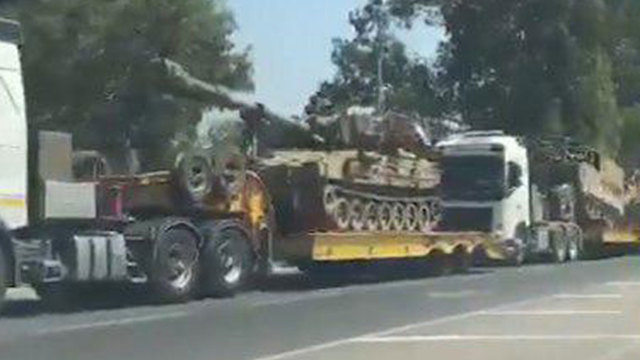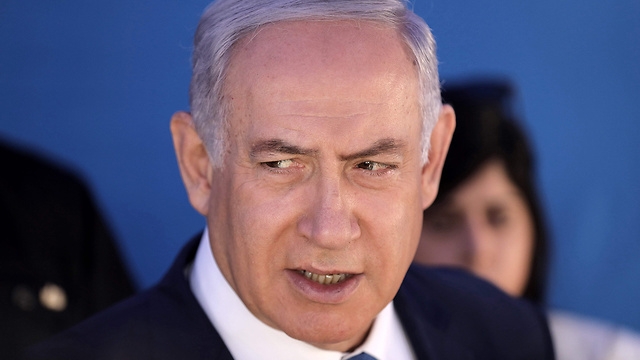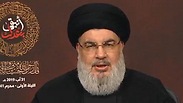

Hezbollah says commanders ready, Israel orders more forces to border region
IDF reinforces border presence as tensions high after Lebanon blamed Israel for two drones that crashed in Hezbollah stronghold in Beirut last weekend; Nasrallah says unmanned aircraft could be used for assassinations, will not go unanswered
Tensions have heightened between the Iran-backed Lebanese movement and its old enemy Israel -- who fought a month-long war with each other in 2006 -- since two drones crashed in the southern suburbs of Beirut dominated by Hezbollah.
Hezbollah leader Sayyed Hassan Nasrallah said in a televised speech that all options were open to counter Israeli drones violating Lebanon's sovereignty.
Drones like the ones used in the Beirut attack last weekend "open the door to assassinations" if left unanswered, he said. "This matter will not be tolerated ... Israel must pay the price."
Israel has accused Iran of stepping up efforts to provide Hezbollah with precision-guided missile production facilities, a warning to Beirut that Israeli counter-strikes could escalate.
Israel's army said Saturday that in the past week its "ground forces, air, navy and intelligence forces improved their preparedness for various scenarios in the northern command area."
It posted on Twitter footage of tanks and ground forces being deployed.
Without claiming responsibility for the drone attack, the Israeli military has published what it said were details about the Iranian campaign to boost Hezbollah's missile capabilities.
Rules of engagement
Precision-guided missiles could pose a counter-balance to Israel's overwhelming military force in any future war, with the capacity to home in on and knock out core infrastructure sites.
Nasrallah accused Prime Minister Benjamin Netanyahu of seeking a pretext to attack and to change the rules of engagement with Hezbollah.
He denied that Hezbollah had factories to produce the weapons. "We have as many precision-guided missiles in Lebanon as we need for any confrontation, small or big," he said.
A new conflict between the two adversaries would destabilize a Middle East already fraught with tensions between the United States and Iran.
Iranian Foreign Minister Mohammad Javad Zarif accused the United States on Twitter of engaging in "piracy and threats" to stop Tehran selling oil to clients, after Washington blacklisted an Iranian oil tanker it said was headed to Syria.
Washington has also ratcheted up sanctions against Tehran in a row over Iran's nuclear ambitions.
Israel is concerned about the growing regional influence of Iran and its militia allies, such as Hezbollah, in countries like Syria and Iraq.
DECLASSIFIED: These are the senior Iranian commanders running Hezbollah's precision missile project in Lebanon. pic.twitter.com/4bw24MBoco
— Israel Defense Forces (@IDF) August 29, 2019
Shi'ite militias in Iraq, many of whom are backed by Iran, blame recent blasts at their weapons depots on the United States and Israel.
Politics is also playing a role, as Netanyahu seeks to appear decisive ahead of an election in three weeks.
Hezbollah, which was founded by Iran's elite Revolutionary Guards in 1982, fought its last war with Israel in 2006 after it captured two Israeli soldiers in a cross-border raid.
Nearly 1,200 Lebanese, mostly civilians, and 158 Israelis, mostly soldiers, were killed in the conflict.
Nasrallah said he wanted "the enemy to remain confused, as it is now."
The Hezbollah leader did not spell out the timing of any retaliation, but he said it "is now in the hands of the field commanders who know what they must do ... and what the limits are."














